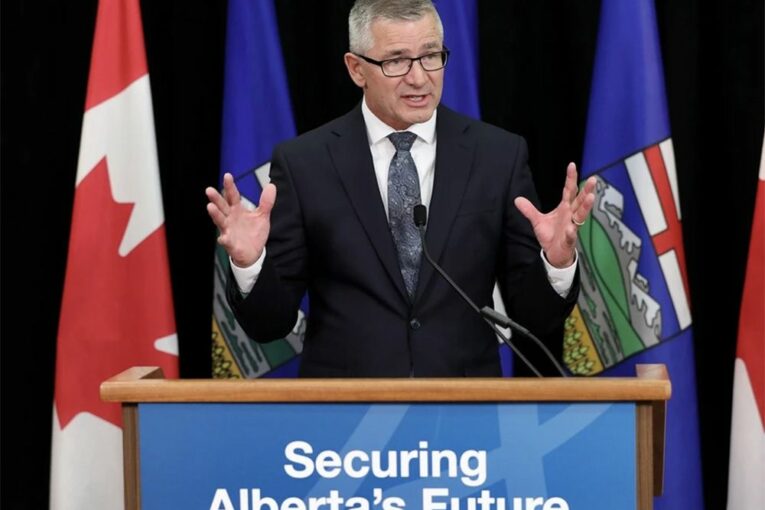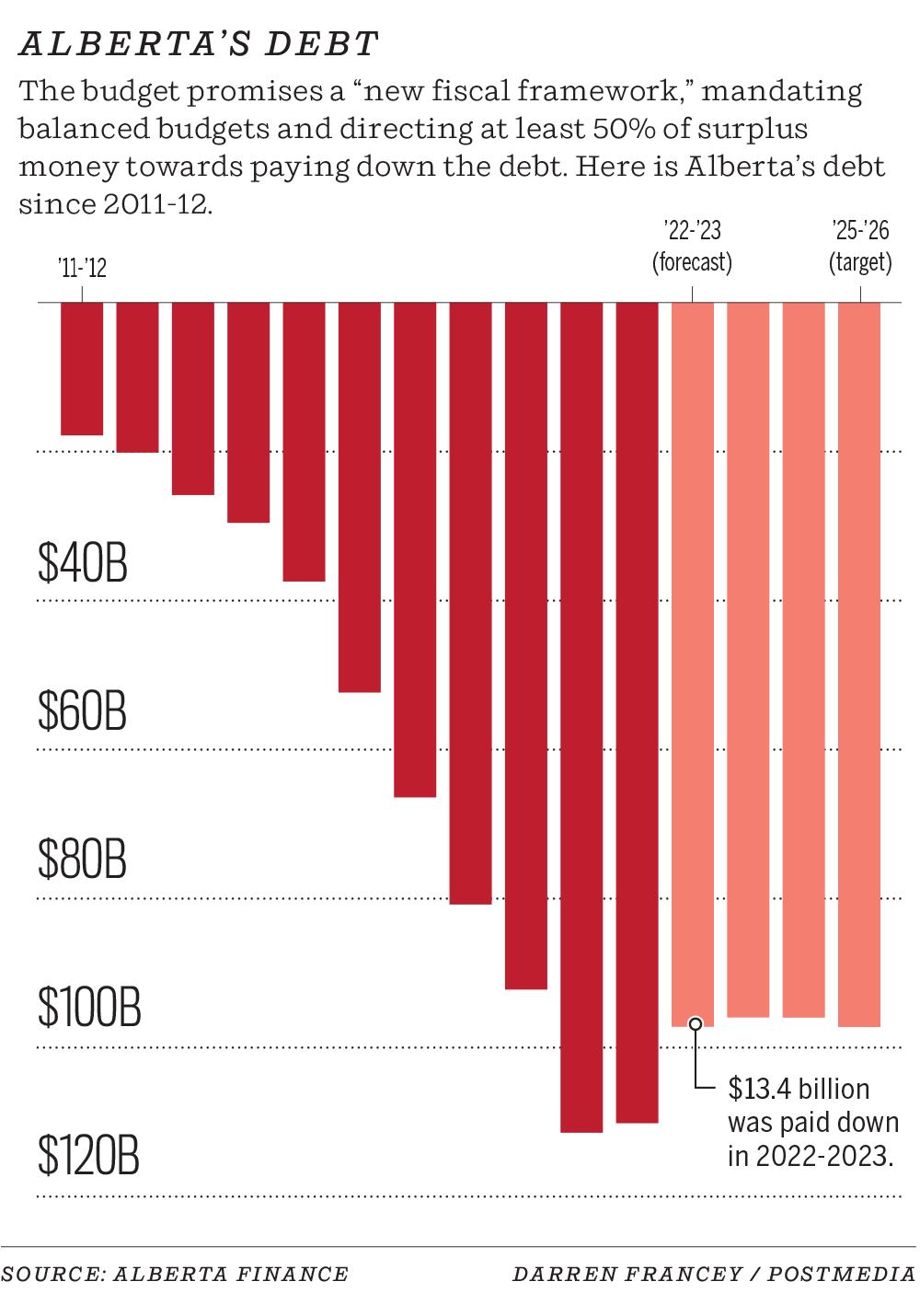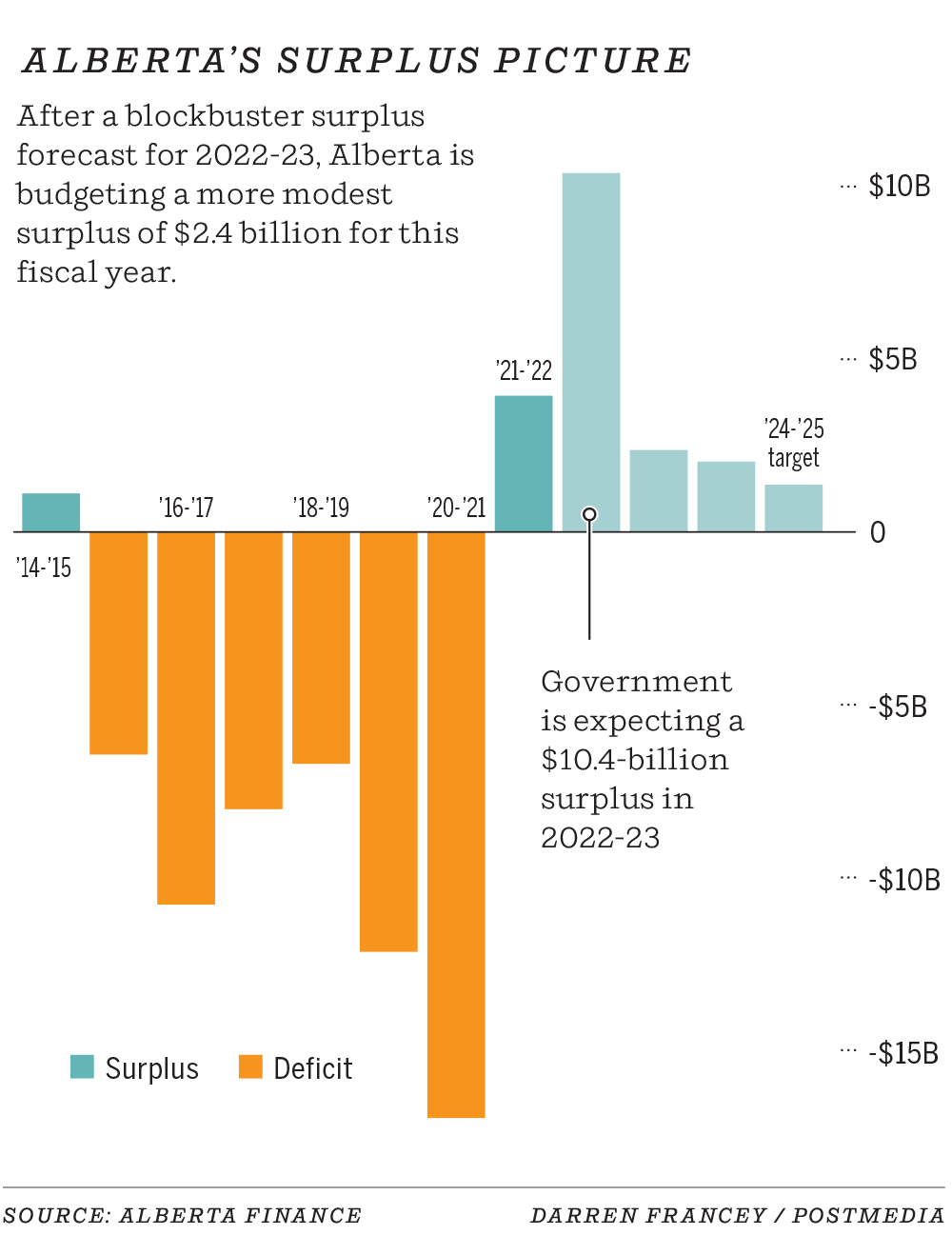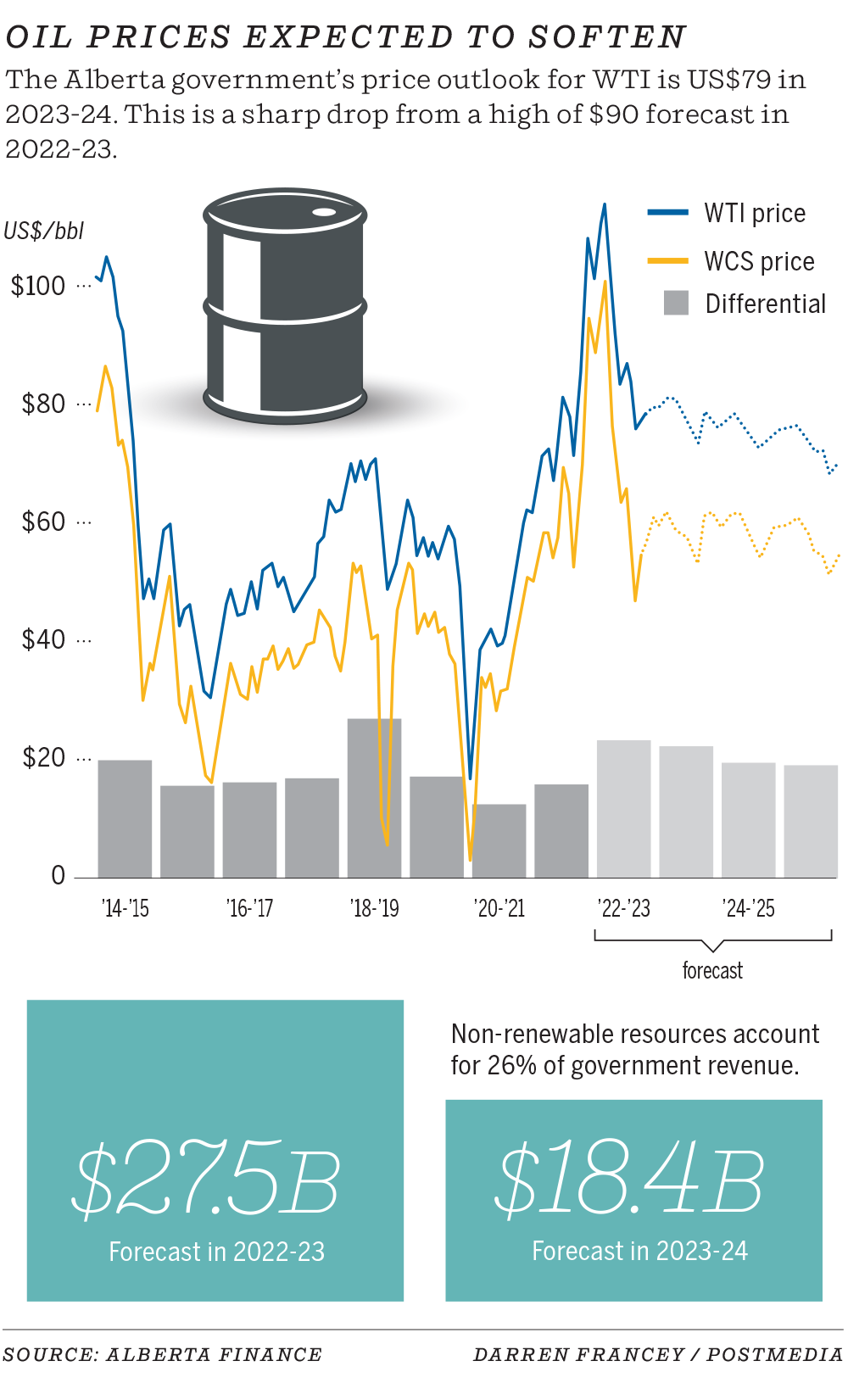
The Alberta government is going to lay down the law on deficit budgets — it’s aiming to pass legislation to get rid of them.
At least, that’s the message in the new provincial budget released Tuesday by Finance Minister Travis Toews. He’s promised a new “fiscal framework” to prohibit annual budget deficits and deal with the expected surpluses in the coming years.
And the consequences of ignoring the rules?
“Look, for a government to contravene its own legislation, and that’s regardless of which government . . . would be a public spectacle and there would be a huge political cost to bear for breaking that legislation,” Toews told reporters.
“I believe that simply passing legislation around these fiscal rules provides real teeth in terms of the impetus for governments to follow them.”
For many Albertans, this debate is a blast from the past, heading back to 1990s and early 2000s when the Klein government halted a string of annual deficits, eventually paid off the debt and passed balanced-budget legislation. It was later repealed.
Such measures can only tie the hands of a future government if they’re actually willing to follow them.
Regardless, the new legislation is intended to “help deal with Alberta’s unique economic and revenue volatility,” the budget document states.
Under the framework, Alberta governments will be required to have balanced budgets, although there are a number of potential exemptions.
Deficits are only permitted at year-end if actual revenues have dropped by $500 million or more from the current budgeted amount, if the province’s $1.5-billion contingency fund is surpassed because of disasters or emergencies, or if expenses increase under the Alberta Petrochemicals Incentive Program.
If such exemptions are met, the government has two years to return to balance.

The plan also aims to limit increases in adjusted operating expenses on a year-over-year basis, tying it to population growth and inflation rates. And it also constrains in-year spending increases and establishes rules for dealing with budget surpluses.
At least half of available surplus cash from year-end results must be earmarked to repay maturing debt.
The rest is to be set aside into a new Alberta Fund and can later be directed to the Heritage Fund for savings, used to pay off more debt, or for one-time initiatives that don’t commit the government to permanent spending hikes.
That could allow for some big spending commitments during the run-up to elections, such as for big capital projects.
Recommended from Editorial
-
Alberta Budget 2023: See our full coverage
-

Braid: Toews wants a budget law Alberta politicians never have any trouble breaking
-

Alberta posts $2.4 billion surplus, with rise in spending ahead of election
-

Read Alberta Finance Minister Travis Toews’ budget speech
“We are establishing the Alberta Fund to bring discipline to the use of our surpluses,” Toews said.
“It’s anything but a slush fund . . . There’s a series of controls that will bring fiscal discipline to this — to any — government.”
Amendments will also be made to let the Heritage Fund keep all of its net income.
The government said part of the reason for the financial framework is due to the enormous swings in the Alberta economy and energy revenues.

The surplus in the new budget year beginning in April is projected to drop to $2.4 billion, down from $10.4 billion for the current year — and $3.9 billion reported in 2021-22.
Before that, Alberta was pummelled by a monster $16.9-billion deficit during the first year of the pandemic, capping a string of 12 deficits reported over 13 years.
For the upcoming year, the royalty ride continues.
Total government revenues are projected to drop by $5.4 billion to $70.7 billion, primarily due to a big decline in resources revenue, but offset by rising investment income.
The budget also shows a moderate deceleration in the province’s economy after torrid growth in 2022. Provincial GDP is projected to grow by 2.8 per cent this year, after expanding by 4.8 per cent in 2022.
Benchmark oil prices are expected to decline from last year’s US$90.50-a-barrel level and average $79 a barrel in 2023-24, still a healthy, profitable level for the oilpatch.

Total taxpayer-supported debt is projected to drop to $79.7 billion at the end of March, while debt-servicing costs are forecast to reach $2.8 billion in the coming year.
Toews said his preference right now is paying down debt, as it will create more fiscal room for the province to manoeuvre if it hits another economic shock.
But will the new rules work?
The Alberta Chambers of Commerce said it’s been calling for such measures for years and supports the idea of balanced budgeting and limiting operating expense increases.
“It’s about that accountability and being able to hold the government accountable for how they’re spending taxpayer dollars,” said chambers CEO Shauna Feth.
“We are going into an election, so it’s a good time to take this step in the right direction.”
However, University of Calgary economist Trevor Tombe said the fiscal framework is complex, while describing the projected budget surplus as “razor thin.”
“The framework is really trying to market fiscal responsibility, but the government didn’t really change their approach to fiscal policy-making — except to dramatically increase spending,” Tombe said, noting spending is climbing to $68.3 billion in the new budget.
“It’s not simple, it’s not transparent, and it will almost surely be abandoned by future governments.”
Chris Varcoe is a Calgary Herald columnist.
More Alberta Budget 2023 coverage
- Business supports, tax incentives focused on stability
- No new inflation-fighting measures coming for Alberta consumers
- Oil well cleanup program listed as ‘key objective’
You can read more of the news on source
